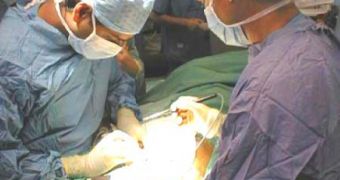The new Model for End-Stage Liver Disease (MELD) organ allocation system, introduced in the United States in 2002, spurred worrying statistics, researchers from the University of Chicago (UC) note in a new report, published in the journal Gastroenterology. The new system virtually reduces the life expectancy of liver transplant receivers, who would otherwise be cataloged as being at low risk of dying.
"What's striking" is that patients "ultimately derive limited benefit, in terms of survival, from liver transplantation. In some cases, these patients may actually be harmed by a transplant, even with an organ of average quality," said the lead author of the new study, Dr. Michael L. Volk, at UC.
"Few would dispute that patients have the right to know the quality of organ they receive, but it's unclear how much patients are truly informed. This is a complex subject, and physicians say that they find it difficult to communicate all the various risks without scaring the patient," the scientist added, referring to the fact that more and more people at the end of the waiting lists for liver transplants receive average or poor quality organs.
The decision about what organ goes to which patients ultimately rests with physicians, although the system is based on a MELD score, which synthesizes many factors related to a certain patient's condition or their complications. Though the system was first created to benefit people who are in dire need of a transplant, it apparently proves to be ineffective in other ways.
"The most striking finding of this study was the complete reversal from the pre- to post-MELD eras in which organs were deemed acceptable for use in which patients. This demonstrates how strongly changes in national policy can affect individual medical decisions," the paper says.
The UC team concludes that, although the MELD system should not be changed for now, important revisions have to take place. Patients need to be better informed about the quality of the organ they are about to receive, despite difficulties physicians encounter in doing so. It's only through informed decision that this concerning trend – of lower risk patients dying after transplants – can be curved.

 14 DAY TRIAL //
14 DAY TRIAL //